James Bay talks hollowbodies, solos and Chaos And The Calm
In-depth with the chart-storming six-string songwriter
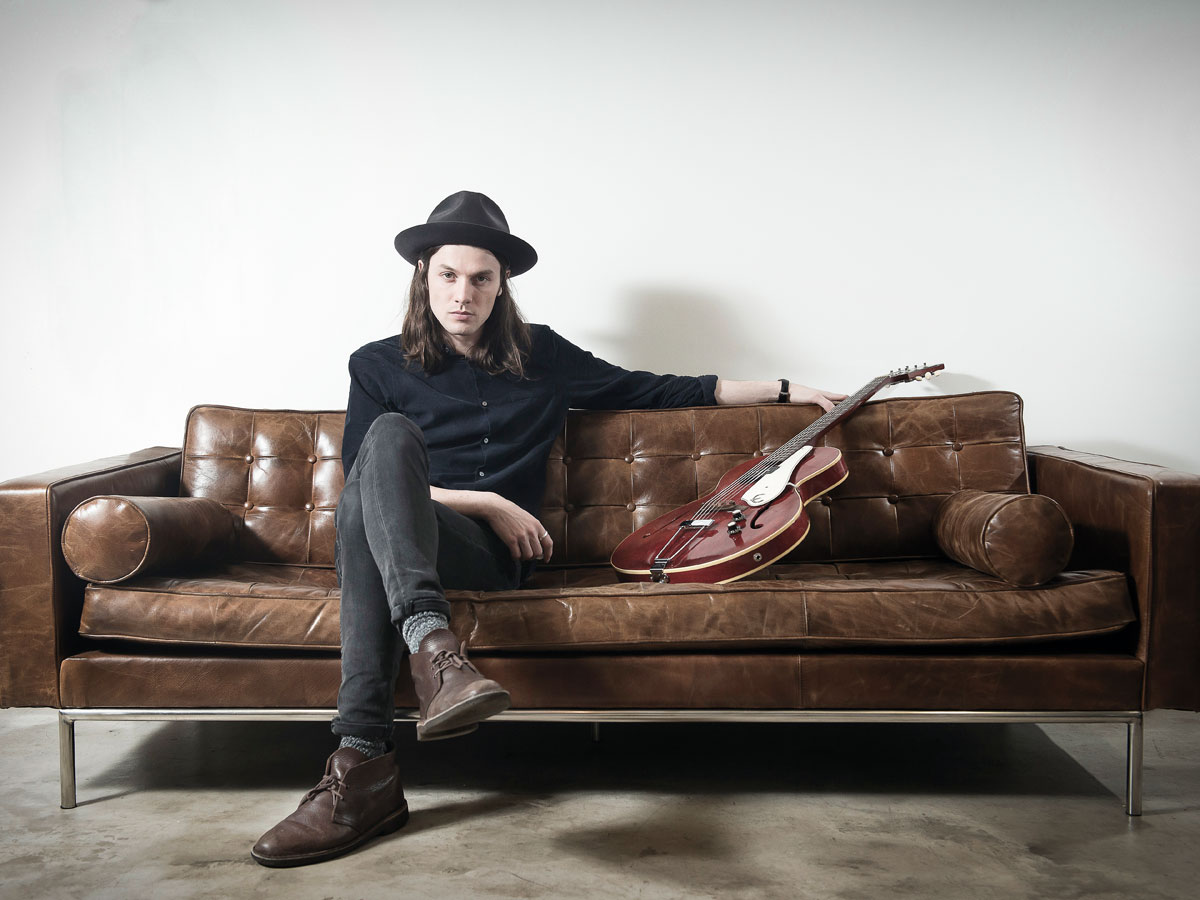
Introduction
He's been dubbed the 'British John Mayer' and he's bringing powerfully soulful songcraft back to the charts with an old Epiphone Century in hand. We meet rising star James Bay to chew the fat about hollowbody tones, keeping his rig simple and why he's keeping his powder dry on the solos...
Last year was a big break for 24-year old Hitchin-born singer- songwriter James Bay - but all the indications are that he's headed all the way into pop's stratosphere in 2015.
"James's soulful voice and forceful songwriting have rightfully gained plaudits, but the former BIMM student's six-string playing is wonderfully concise and effective, too"
The past 12 months saw him tour the US with Hozier, secure his first Top 10 hit with Hold Back The River, come second in the BBC Sound Of 2015 poll, and then topped it all by winning the prestigious 2015 Critics' Choice Award at the BRITs, whose previous winners include Sam Smith, Adele and Jessie J.
As we go to press, Bay's debut album, Chaos And The Calm - produced by Kings Of Leon producer Jacquire King at Nashville's Blackbird Studio - has just hit the shops. And while James's soulful voice and forceful songwriting have rightfully gained plaudits, the former BIMM student's six-string playing is wonderfully concise and effective, too.
From elegant acoustic fingerstyle subtleties through to incisive electric rhythm playing, there's no doubting that the two hard years James spent in Brighton busking and playing countless open-mic nights have more than paid off handsomely.
We caught up with James to find out what keeps the creativity flowing on guitar...
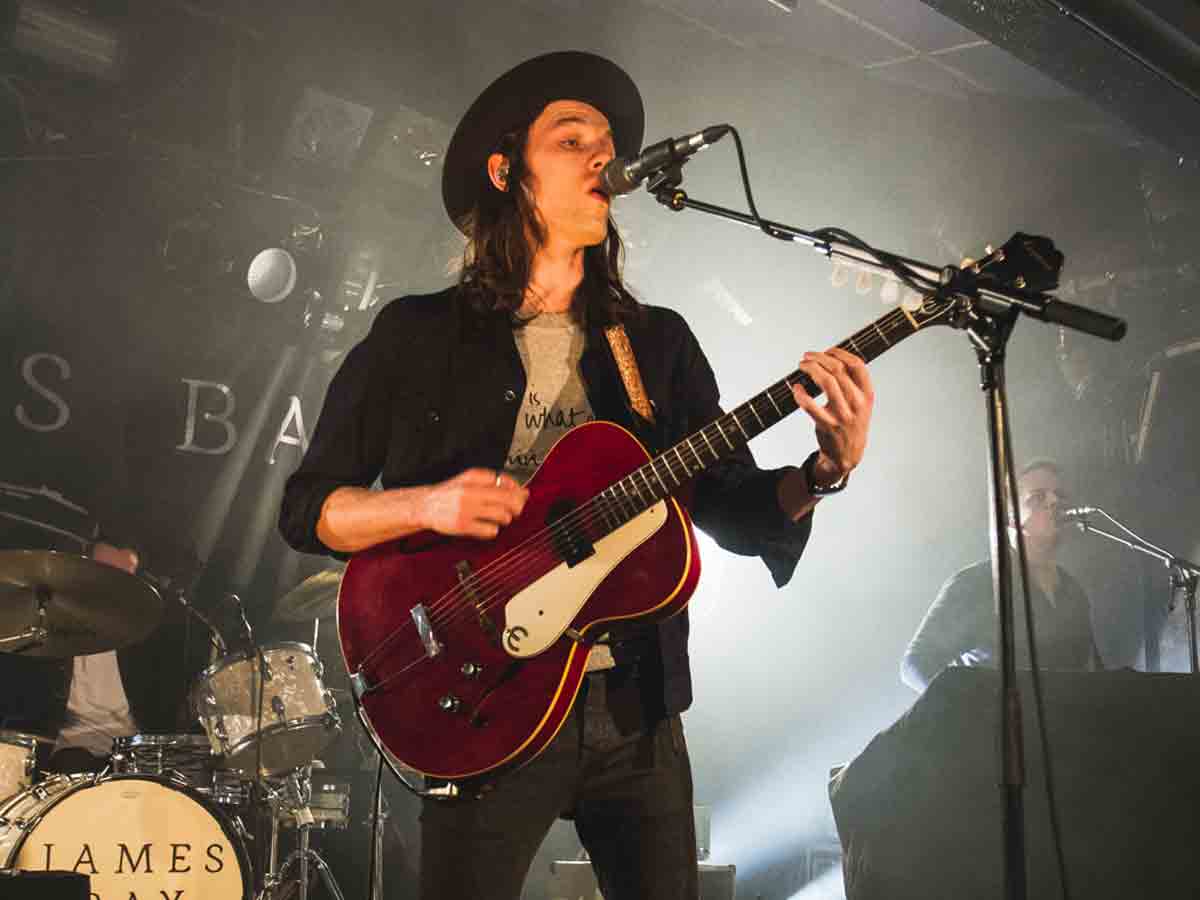
Tone zone
How would you sum up your approach to tone on Chaos And The Calm?
"As a kid, I was always nerding out about details and electronics and parts. But recently I finally started to nail down what it is I like. My sound starts with P-90s, and the other thing to my sound that I like the most is that air.
"I tune down a whole tone because I love open chords and open strings, and I can't sing in C as well as I can in Bb."
"I'm all about the f-holes and a completely hollow body. You get feedback issues, but I just want to ride with that in the moment and see how I can control it. I like finding that sweet spot of crackle with the air that's moving through.
"I also tune down a whole tone because I love open chords and open strings, and I can't sing in C as well as I can in Bb. With open strings, I love getting that sort of twangy jangliness, but where you can still feel the air in the sound of the P-90s, so it's not indie jangle. It's more like a kind of Motown soul jangle."
How did you come by your Epiphone Century?
"[It starts with me getting signed]. After seeing this YouTube video of me playing an open-mic night, my label [Republic Records] asked me and my management to fly to New York.
"While I was there, I wandered around Bleecker Street in Greenwich Village and played this really cool hollowbody in Umanov Guitars. It sounded kind of funky and cool and I was like, 'Yeah, man. If I ever come back to New York, I'm going to get this dream guitar!'
"I told everyone, but when I got home, I went up on the website and it said 'SOLD'. A few days later,my managers asked me to go to the office to pick up some post. There was a big box in the office and I was like, 'What?' The label had bought and shipped me that guitar!"
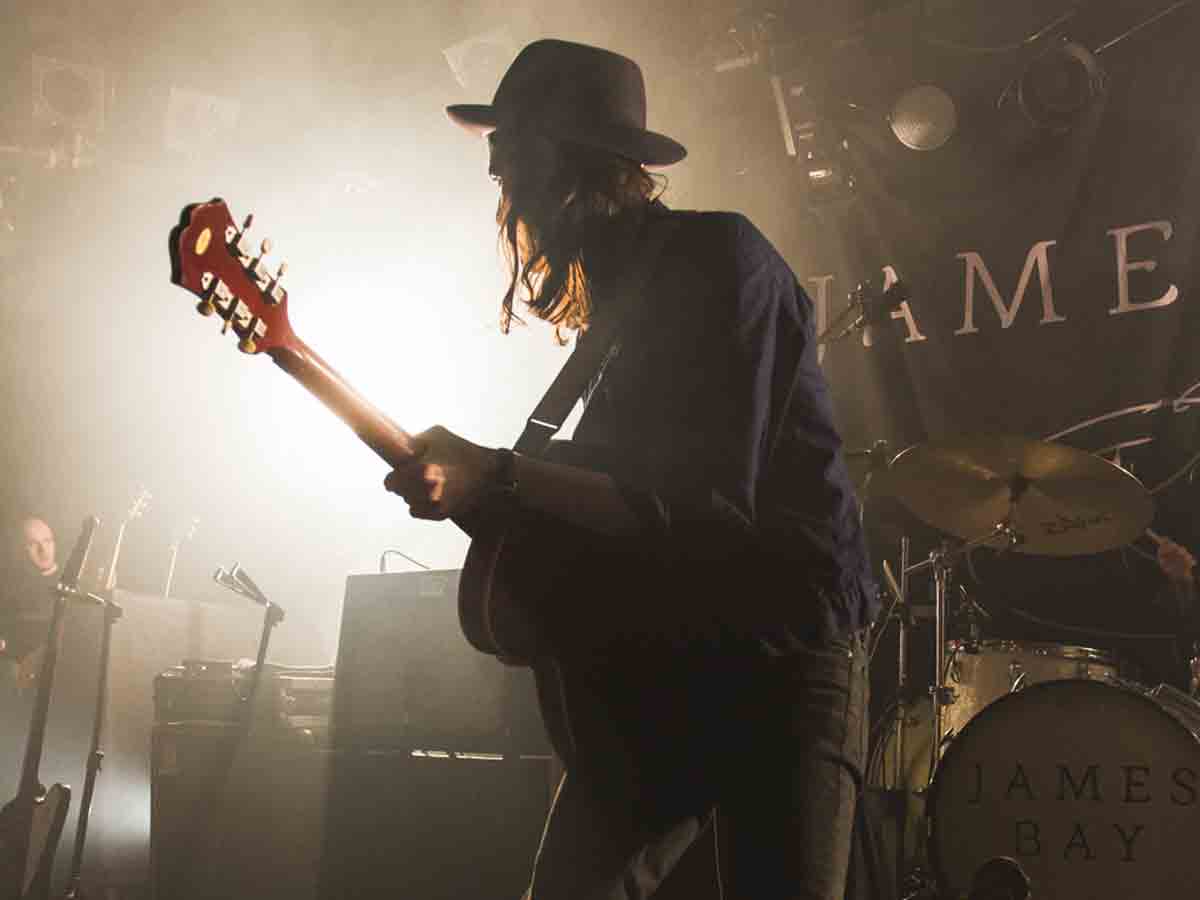
Guitar library
What electric guitars did you play when you were laying down the tracks at Blackbird Studio?
"I played my Epiphone Century guitar the most, but I also played some other cool things. There was a gorgeous old '54 Strat that I played slide on, and then an old Silvertone Jupiter, which my producer Jacquire King had there.
"John McBride has a famous line: 'For the first 25 years of its life, a guitar still thinks it's a tree, so it needs that time to age.'"
"I was loving that guitar and it had these funny little old pickups and some changed parts on it like brand new tuning pegs, so it was a bit of a 'Frankenstein' but it sounded great, man. That thing felt a bit like a toy guitar and it was definitely in that slightly Jack White kind of vein.
"There was also a gorgeous Custom Shop Telecaster I played and then a John Lennon Casino I used on a couple of tracks. That was gorgeous, too, and had a very sort of rich, crackly P-90 tone again."
And what about acoustics?
"I have to say that one of the greatest, most wonderful benefits of recording at Blackbird is all the old guitars they have. There was this beautiful 1941 Martin D-28, which was very warm and that went down on a few tracks. There was a Gibson J-50 and basically all of the paint and lacquer had come off the front. John McBride, who owns and runs the studio, has a famous line: 'For the first 25 years of its life, a guitar still thinks it's a tree, so it needs that time to age.'
"My go-to acoustic that I play all the time is a J-200, but at Blackbird there was a 1949 J-200. It hurt to play it but it sounded like a piano. It was just the most ring-y beautiful sounding guitar."
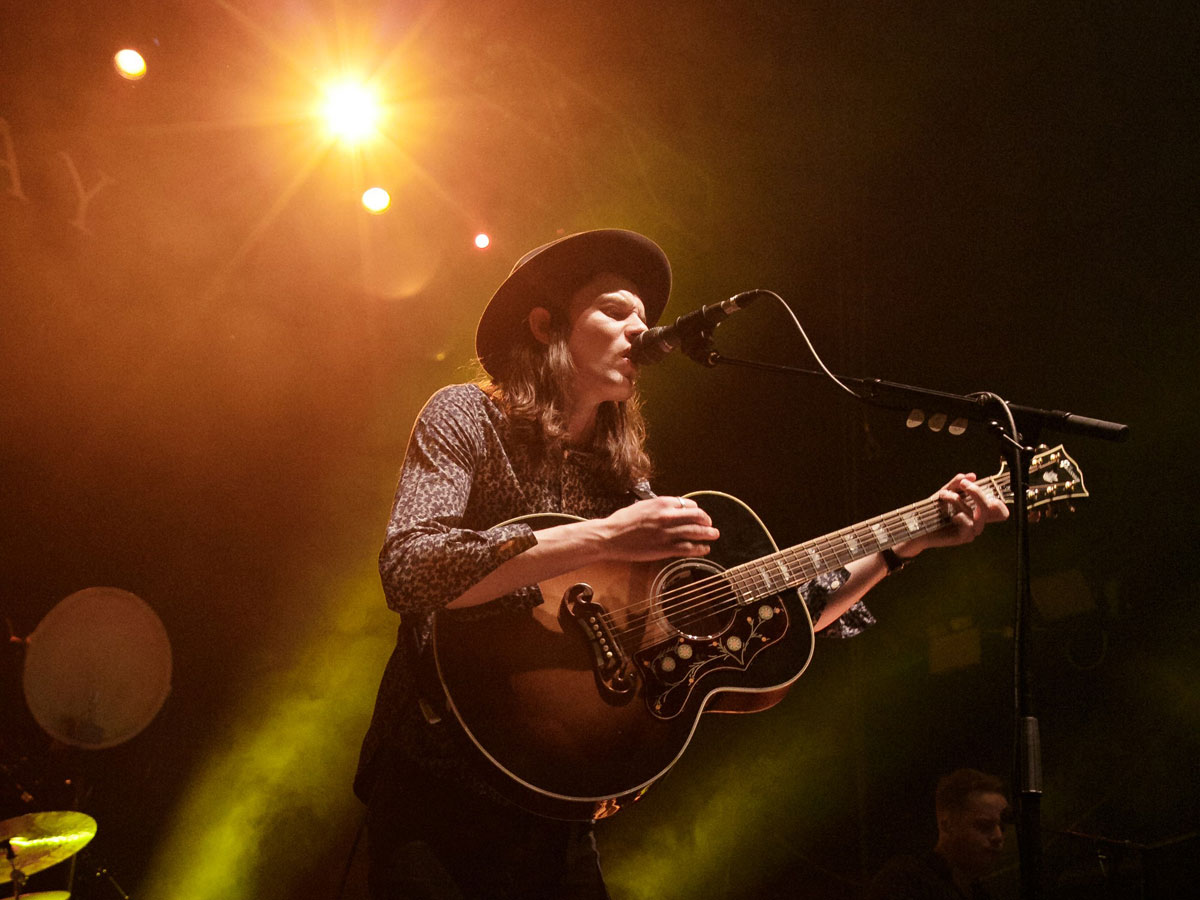
Make up the break-up
What amps did you use on the album compared with what you choose onstage?
"In the studio, I used a late-60s 'silverface' Twin most of the time and then I played through Jacquire's Selmer amp a little bit, too, which was a big old glassy clean thing.
"I guess I take that Derek Trucks approach of 'let's just go straight into the amp'"
"Having made the record and discovered some sounds I loved, particularly that P-90 sound through the 'silverface' Twin, I really wanted to replicate that, but - my God! - is it impossible to get a decent Twin and cart it round everywhere without it breaking every five minutes?
"But then I found Tone King amps, which are made by a guy called Mark Bartel in Baltimore. I now play live through a Tone King Sky King. It's so clear but warm, and it breaks up just in the right way.
"I do like break-up, but I don't like it to be too aggressive. I like to work to get it to feel aggressive. It also has a built-in [Ironman] attenuator, which is this beautiful thing that allows you the same tones when you click down to different volumes. This amp has some of the greatest sounds ever."
Do you utilise many pedals and effects?
"No, I don't have many. I have been using an MXR Carbon Copy delay because I wanted a simple decent go-to delay pedal and I like the modulation button on it. There are loads of great delays, but I can only get so deep or else I'll fall into this endless cycle of options. I also use an [Electro-Harmonix] Holy Grail reverb at times, but the reverb on the Tone King really is pretty beautiful.
"I guess I take that Derek Trucks approach of 'let's just go straight into the amp', because the amp does so much. I don't even do anything with the tone knob on my guitar, and I barely do anything with the reverb. I'm just all the way up and it's about my hands. That's where volume comes from."
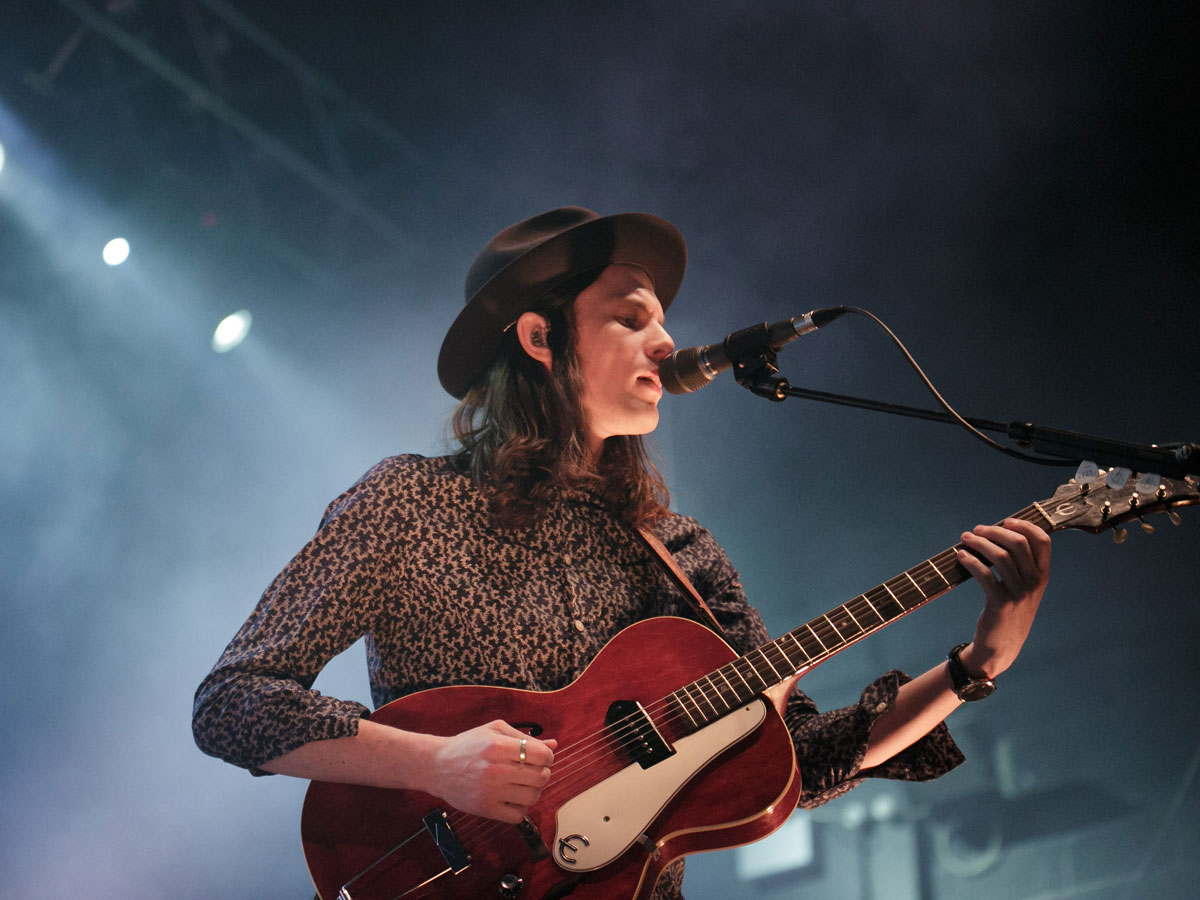
Less is more
Could you summarise your approach to writing and where the guitar fits in?
"I ended up writing a lot of the album on the Century, but before that I was writing most things on acoustic. I love the fact that, with the Century, I don't even have to be plugged in. It's hollow so I get a response from it sonically, and it also inspired me to stand up and dig in, in a Springsteen/Keith sort of way.
"I had to really discipline myself because I spent so many years in my bedroom soloing and learning riffs"
"But all my songs are born out of guitar and vocal, but then there can be different versions. Clapton and John Mayer have done it a lot where they'll take these really quite big guitar parts and put them into a full band arrangement.
"They'll totally work in that environment, and I essentially write some songs with the intention of recording them in that environment... What I love about it is you can bring them right down into that MTV Unplugged sort of vibe."
Many guitarists don't seem to take songcraft as seriously as their playing but you seem to have struck a rare balance...
"Thanks. And do you know what helped me do that? This is a big discipline - but I ruled out solos. All I want to do is play solos! My band's soundchecks and rehearsals get overwrought with jam sessions, because I absolutely love it.
"But, you know, I listen to people like George Harrison on All Things Must Pass - an album full of beautiful, brilliant songwriting, vocals and lyrics - and there are very solid, structured guitar parts. Less is more. So that was a simple rule, and when I was writing, instead of putting a solo in a certain space, I would try and write a middle eight and add a little bit more emotional information.
"I had to really discipline myself because I spent so many years in my bedroom soloing and learning riffs, but I realised I didn't want to just get lost in noodling. If I wanted to create some sort of prolonged career, then soloing just had to be one small part of that.
"Having said that, we've got the Shepherd's Bush [Empire] gigs coming up and there's no chance I'm going two nights there without playing a solo onstage, man! I won't wander too far outside of the box, but I will find my places to bend some strings!"
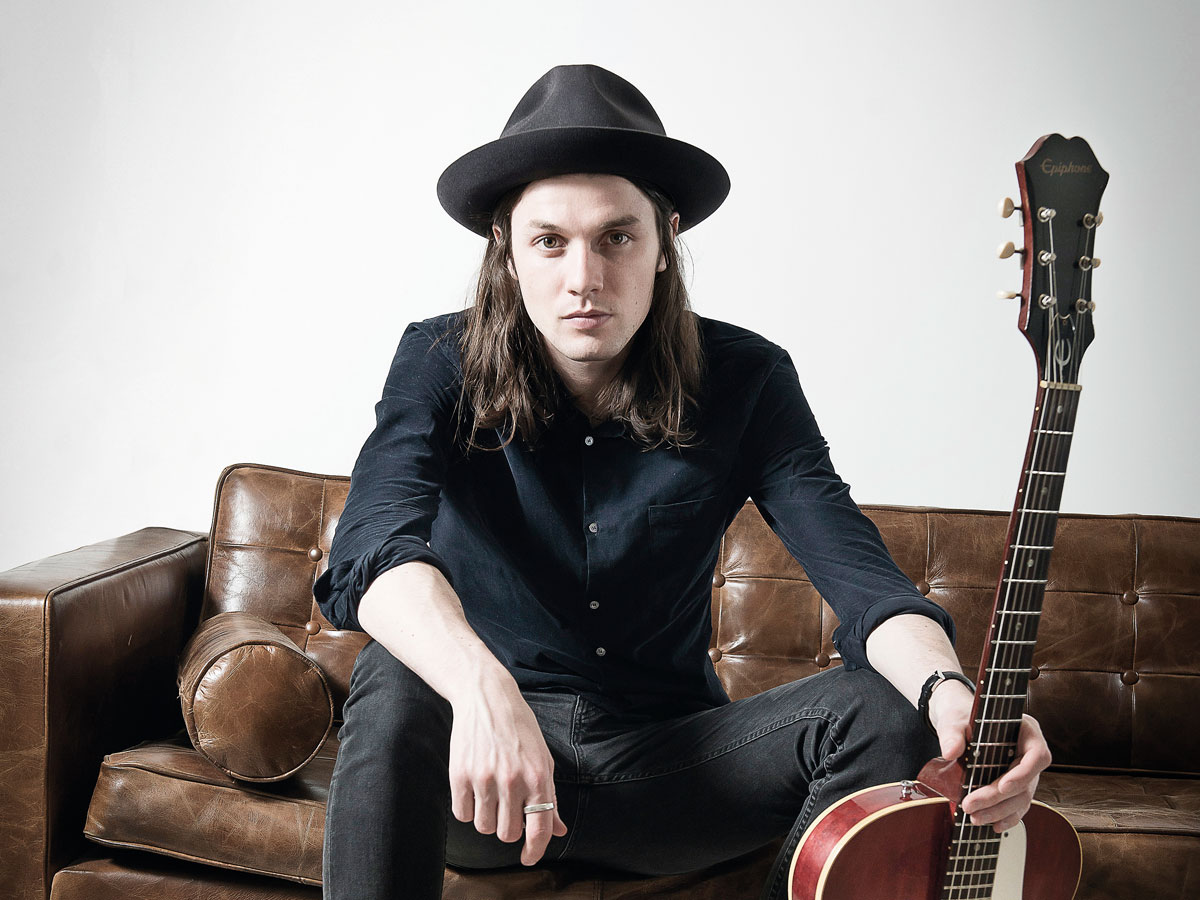
Six-string singer songwriter
There seem to be a lot more singer-songwriters playing great guitar these days. You've come at the right time...
"Well, I guess in the early 2000s, people were strumming three chords and singing a great song. I'm thinking of singer-songwriters like Damien Rice and Ray LaMontagne.
"I feel like I have a great window to play electric guitar parts and to be a songwriter and singer at the same time"
"Then it seemed there was a huge popularity in electronic dance music and stuff like that, but now that's dying away a little bit and this more organic sound is coming back through. There's room for everything now and I feel like I have a great window to play electric guitar parts and to be a songwriter and singer at the same time.
"Once upon a time, it existed in a different way, with guys like Springsteen and Clapton and George Harrison, because they were all mainstream back then. It's really cool to feel like people are up for that again now and I'm going to jump at that chance..."
James Bay's Chaos And The Calm is out now on Virgin Records

